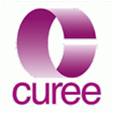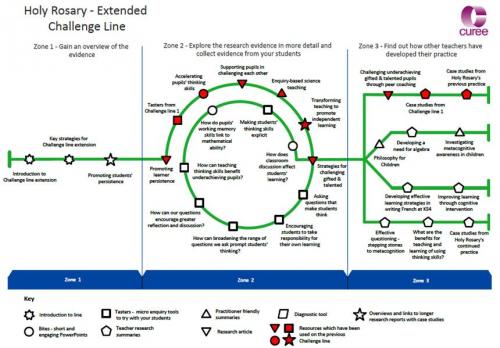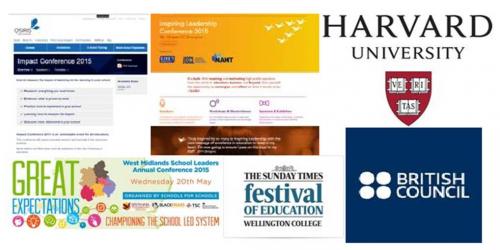
The Centre for the use of Research and Evidence in Education
E-NEWS
The Election Edition: May 2015

CONTENTS
Championing Research-Informed Leadership around the World
Will your CPD offer meet the standards?
Professional Development & Action Research
Future First alumni programme evaluation
The Philippa Blog
I hope you all had as wonderful Easter as I did. The sun on the fells was glorious!”
The lead up to an election is always odd. Parties and ex-ministers want to be “ready for their close ups” on the one hand, so there are lots of aspirations percolating the system. But at the same time nobody wants to be pinned down to practical detail - which is important for distinguishing between magical thinking and a possible new reality... But there are up sides to the new policy agenda. I am very excited by my work for the Expert Group on CPD standards (see below for a CUREE focus group to explore your ideas about what would really make things better) and by working with Jim Rose on principles to inform thinking about the standards for the new College for Teachers. I missed the ASCL conference but was impressed by the manifesto and by how many commentators, including Sir Michael Barber, thought it offered a real breath of fresh air! The meeting I had with ASCL’s Professional Committee to help them think about their CPD strategy was one of the liveliest I can remember. My biggest policy worry, one I know is shared by many of you, is the quality and quantity of teacher supply at all levels. So I have girded my loins and agreed to take part in the Battle of Ideas focussed on “Qualified or not? Qualified in what? The Great Teacher Training debate” at the Education Festival at Wellington College in June. This is as much about CPD as ITE and the Panel is an interesting mix of up-for–it new teachers, commentators like Toby Young, David Weston and me.
But fascinating as big picture policies may be, they seem to me to be likely to miss their mark if they don’t tap into the key concerns of teachers on the ground. The key concern for pupils, we here, is extended writing and the literacy skills that underpin it. The new exams and assessment without levels concentrate attention but also reveal a need for everyone to have a strong grounding in the core building blocks of literacy; colleagues are increasingly realising that extended and more academic writing requires much more than just asking pupils to “write more”. It is a cumulative process in which everyone has a part to play. So strategic planning of coherent continuing professional development and learning still looks like a top priority to me.
Philippa Cordingley
Championing Research-Informed Leadership around the World
CUREE has recently completed the first phase of an exciting project for the British Council; one which will drastically expand our reach! The British Council’s Connecting Schools programme is an ambitious project to improve learning outcomes for students around the world through research-informed services and training. As part of this larger package, CUREE are developing a set of training materials and resources for school leaders to help them effectively design and implement a curriculum which has a positive impact on both teachers and students. The training materials will be piloted by Natalia Buckler in Kenya in May so we can refine them in the light of firsthand experience. Next stop a thought leadership article to accompany it which outlines the principles and thinking behind our contribution to the project. Exciting!
CUREE’s work on this project draws heavily on our Building The Evidence Base project for QCDA, and in particular the resulting principles for effective curriculum development. We also drew on Vivian Robinson’s Best Evidence Synthesis (summarised here) of principles of effective school leadership to inform the materials.
If you are interested in CPD about designing or implementing a curriculum which draws on the research evidence to produce the best outcomes for learners and staff, contact lisa.bradbury@curee.co.uk
Route Maps on the Road

The CUREE team have been out and about across the country with Route Map workshops, finding out how teachers are using their bespoke Route Maps.
Holy Rosary in Magull are using their second Route Map to build on last year’s action research around Challenge. Their Route Map projects are now inspiring a second group of teachers to use a new extended Route Map to engage with research. Exciting projects in the pipeline are varied, but examples include increasing students’ resilience and applying challenge strategies in maths. ‘It has been interesting to listen to teachers of other subjects and age ranges discussing their previous experiences and plans for research projects’- one of the many comments we were pleased to hear!
Pendle Vale in Lancashire started working with their Route Map last October so are mid-way through their first round of action research. We found that teachers there are already seeing the benefits of conducting structured small scale action research with very specific groups of students. As one teacher put it ‘I can “scale it down” and focus research on a small group of pupils’. Success through working with the Route Map together with colleagues was also a common theme, with teachers at Pendle Vale saying that ‘the discussion with other people who are researching a similar theme’ is proving especially useful. We are looking forward to seeing the results later on in the summer term.
To find out how route maps can help you structure professional learning in your school contact Jag or Anne at CUREE
Will your CPD offer meet the standards?
The problem of variable quality of professional development and the lack of any reliable information on which schools can make sensible judgements about quality and value of CPD has prompted the Government to ask an Expert Group to develop some standards. This has cross-party support and is expected to report early in 2016. We pleased that CUREE’s expertise in this area has been recognised through our Chief Executive’s membership of that Group.
In the meantime, the problem for schools has got worse as several dozen Teaching Schools are now adding their CPD offer to the unregulated, standards-less mix which is already too confusing. School based CPD has much to commend it but it is not automatically better than anything else (as our quality evaluation for the TDA demonstrated). But, happily, you don’t have to wait for the Expert Group to pronounce as CUREE has already developed some evidence-based standards for CPD providers. CUREE’s Quality Review (QR) service is being used by commercial CPD service providers, local authorities, and individual and group school-based CPD providers to check the quality of their work against benchmarks and, of course, to promote their services in a crowded and confusing market place.
Contact Deanna or Natalia if you would like to know more – or visit our website here
Professional Development & Action Research
CUREE is writing an article for Professional Development Today and, with action research gathering pace as a focus for educators and policymakers across the country, we thought it would be timely and valuable to discuss what the evidence has to say about how professional development can make action research effective and meaningful. Our article draws on Philippa’s opening keynote for the ResearchED research lead Day earlier this year “Part of Everybody’s Day Job”. You will be able to access there the details behind the slides in this link and discover what professional development can and should contribute to making engaging in your own research or with other people’s effective and efficient. Look out for us in the Summer Issue of PDT!
CUREE CPDL Programmes
 The Spring term was as busy as ever with a large number of CPDL programmes facilitated by CUREE colleagues. As well as delivering the new rounds of Research lesson Study and “Breakthroughs in Literacy: Response to Intervention” training for the National College there has been an increase in demand for mentoring and coaching training particularly for leadership teams. It was particularly enjoyable to work with the schools in Merthyr Tydfil as well as LA colleagues. The importance of coaching and mentoring is a consistent feature in the research evidence about effective professional learning for all stages of a teacher's career and never more so than during initial training. Our work as Teaching and Leadership Advisers for the National College of Teaching and Leadership is giving us an important window into the current work of Teaching Schools as they recruit for their School Direct programmes. The ability to provide high quality mentoring is a key selling point for these schools. So we were delighted to provide a workshop last week at the TeachEd event sharing some of our resources designed to support not only ITT mentors but also tools which help trainees and NQTs make better use of their mentors!
The Spring term was as busy as ever with a large number of CPDL programmes facilitated by CUREE colleagues. As well as delivering the new rounds of Research lesson Study and “Breakthroughs in Literacy: Response to Intervention” training for the National College there has been an increase in demand for mentoring and coaching training particularly for leadership teams. It was particularly enjoyable to work with the schools in Merthyr Tydfil as well as LA colleagues. The importance of coaching and mentoring is a consistent feature in the research evidence about effective professional learning for all stages of a teacher's career and never more so than during initial training. Our work as Teaching and Leadership Advisers for the National College of Teaching and Leadership is giving us an important window into the current work of Teaching Schools as they recruit for their School Direct programmes. The ability to provide high quality mentoring is a key selling point for these schools. So we were delighted to provide a workshop last week at the TeachEd event sharing some of our resources designed to support not only ITT mentors but also tools which help trainees and NQTs make better use of their mentors!
Why not take a look at some of the CPDL programmes we offer as well as the blended learning resources we offer for coaching and mentoring? Further information can be found at http://www.curee.co.uk/node/2891
The Summer Tour
We are entering that stage of the year when schools and colleges can step away from the day to day business and do some planning and development. Alongside our international work, there are many events, festivals and conferences and we shall be at some of them. If you are too, please come and say hello and maybe see if we have anything to offer of value to you. Here is just a small sample. Click on the picture below for more information

ResearchED CambridgeA gloriously sunny day in Cambridge and 9 o’clock on a Saturday morning – what do you think you might find 150 dedicated teacher leaders doing? Planning how to lead research informed practice in their schools was the reality on 14th March 2015. Highlights of the day for CUREE included the buzz in the Hall as participants responded to Philippa’s challenge to spot the most effective strategies for making use of research and evidence part of the day job from case studies early in her opening keynote and the lovely debates in subsequent workshops. Three cheers for Clare from Samuel Whitbread school and her research on turning performance review targets into research questions! |
Future First alumni programme evaluationCUREE were delighted to work with Future First over the past year to find out more about their alumni programme. This programme targeted a group of 25 schools in the areas of greatest need (based on the proportion of students eligible for free school meals). This involved Future First running six alumni events in each of the schools, which were largely targeted at students who were currently studying for their GCSEs. Session foci ranged from reflecting on the importance of getting a C grade in English and maths to post 16 career routes.
Through the series of alumni workshops the programme was able to have an impact on student outcomes such as increased:
To find out more about our evaluation and the impacts the programme had, please read our summary report which you can find here: http://futurefirst.org.uk/assets/FF-JPM-CUREE-Exec-Summary-March-2015.pdf
|
World Class Professional LearningPhilippa is keen to make sure her contributions to the Expert group are based on evidence both from the research and form current in-school practices. We would be very pleased if you were able to help her do this in two ways. Firstly we are planning to hold a two-hour focus group (probably starting at 3:30 pm) in our Coventry offices toward the end of June. Second, we will be running a short online consultation questionnaire for those who would like to contribute but can’t attend a meeting. To register a (no-commitment) interest in either or both of these just email us by clicking here
|
